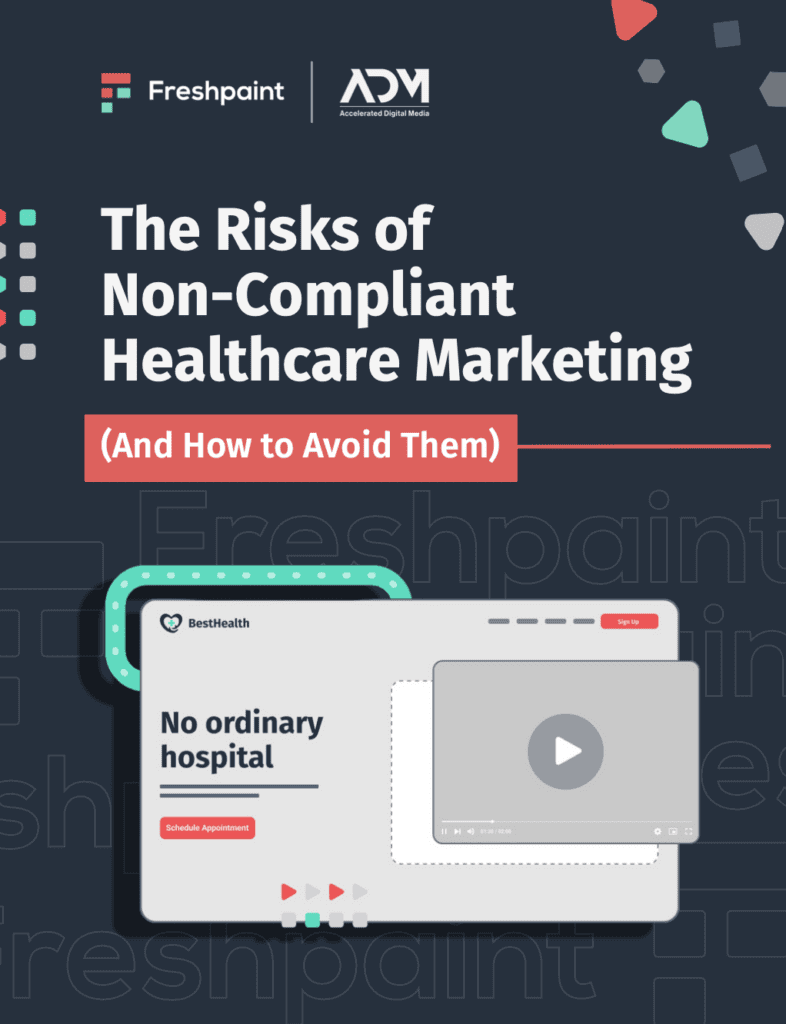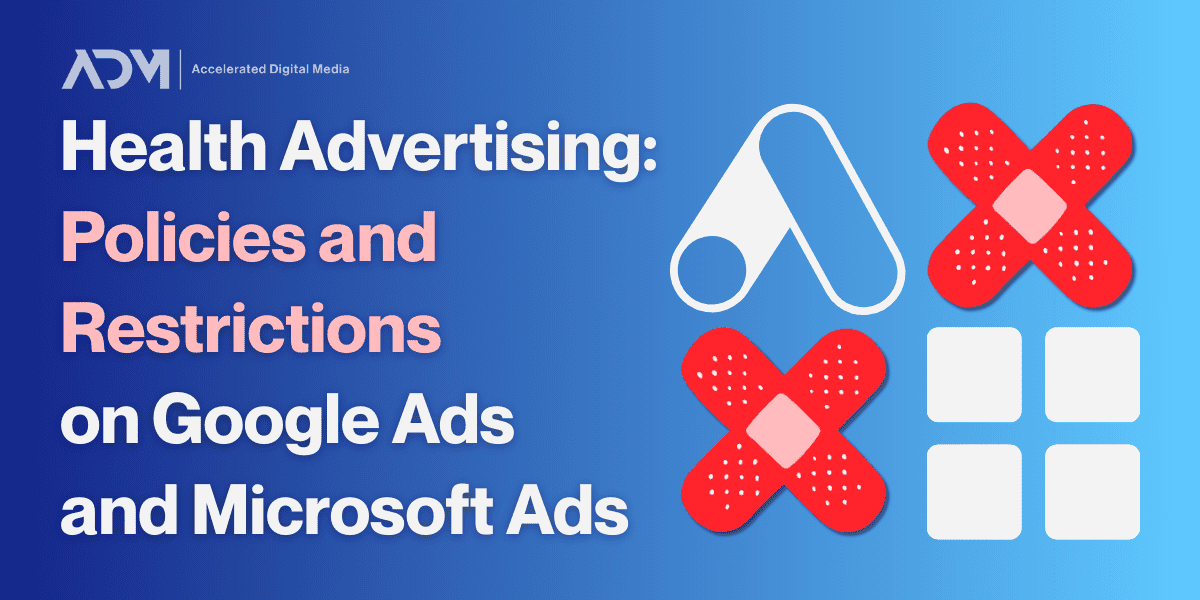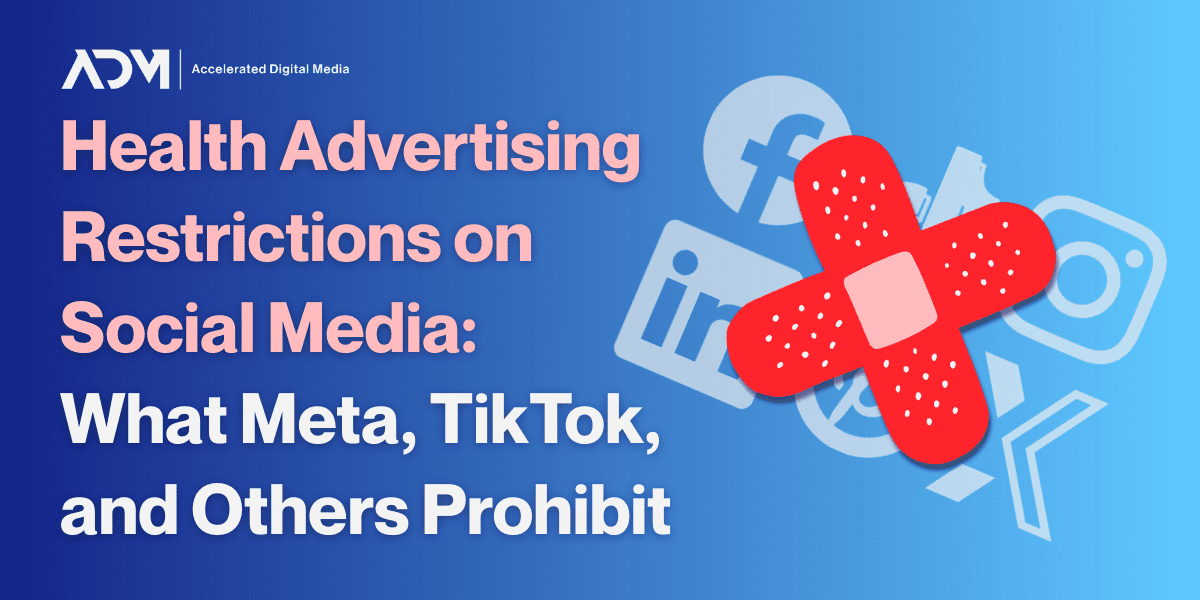Google Ads is an extremely powerful tool for growing D2C digital health brands—but deploying it in a compliant manner can be complicated.
Google has specific rules and restrictions for ads in the healthcare space, and it’s easy to get tangled in the web of guidelines. Missteps that result in ad disapprovals can be incredibly costly. When ads go down, business comes to a halt. D2C digital health brands need expert guidance to navigate Google’s policies successfully.
Why Google Ads for Healthcare Are Rejected
Healthcare advertising is a serious and sensitive field. Digital ads can be an effective tool for connecting patients with healthcare and wellness resources they need, but exploitative or sensationalized advertising could lead susceptible searchers astray.
To combat those practices, Google has specific guidelines and restrictions for health-related advertising in place. However, these same policies make things tricky for legitimate D2C digital health brands seeking to communicate necessary health information to patients.
Tricky, but not impossible.
Google Advertising Dos and Don’ts for Health Brands
Getting your healthcare ads approved takes a few extra steps. To stay on Google’s good side, you’ll need comprehensive knowledge of the following four Google advertising policies:
- Prohibited Content (things you can’t advertise at all)
- Prohibited Practices (things you can’t do while advertising)
- Editorial and Technical (elements of your ads that must meet certain requirements)
- Restricted Content and Features (things you can advertise, but with limitations). This is the section most unique to the promotion of healthcare and medicines.
Keeping these policies in mind, it’s also helpful to know some of the essential dos and don’ts when it comes to the three types of Google Ads that most D2C digital health brands should leverage — Search, Display, and Shopping/PLA.
Google Search Ads Guidelines
Paid search is one of the most powerful PPC levers that a D2C digital health company can leverage. They appeal to patients who are already actively searching for your digital health product or service, making them critical for capturing high-intent searchers and driving direct conversions. When setting up your Google Search Ads campaign, mind the following:
- DO: Have all necessary certifications and clearances
If you sell or promote pharmaceutical products, medical devices, US-based health insurance, or addiction services, you typically need additional Google certifications to run Search ads. If you advertise cell and gene therapies in the US, you will also need an FDA-issued license.
- DON’T: Advertise unapproved substances or pharmaceuticals
Google has massive, yet non-exhaustive, lists of unapproved substances and pharmaceuticals that can’t be advertised on Google Ads. On the substance side, most are weight-loss/fat-burn supplements or products that contain ephedra or anabolic steroids. While legitimate health outlets typically don’t traffic in such materials, it’s always important to cross-reference Google’s resources if there is any doubt.
But on the other list, there are many pharmaceutical names that can’t be advertised, including the generic names for countless trademarked drugs (which sometimes can only be marketed by the trademark holder). It’s imperative to check this list before advertising any pharmaceutical products, even with proper approvals.
- DO: Use compliant ad copy that matches your landing page
All health-related advertising restrictions on Google Ads apply to the ad copy and imagery used as well as to the landing pages associated with those ads. Don’t think you can whip up a compliant ad campaign only to drop users off on a page that then contains misleading information, graphic imagery, or other unapproved content. While it’s possible these violations might evade Google’s detection for longer than it would in ad copy, the crawlers will eventually catch it and penalize your account.
- DON’T: Make misleading or false claims
No product or intervention works 100% of the time, and most people in healthcare know to stay away from making unrealistic guarantees. But even by assertively implying efficacy, your ads could be struck down due to the “Unreliable Claims” rules under Google’s ban against dishonest or misrepresentative information. Pay close attention to the way you make treatment or outcome claims. Including phrases like “results may vary” is generally advised.
- DO: Be transparent about pricing
Rules against dishonest pricing practices are prohibited with Google Ads no matter the industry. Digital health companies need to be mindful of that, because prices with and without health insurance can vary greatly. If you’re looking to advertise based on an item’s price point after insurance, you have to stipulate that the lowest listed price is only possible with insurance, and that it’s possible a user’s insurance won’t cover them for that product or service. According to Google, it is essential that digital health advertisers make it clear what payment or billing model they are using and how much financial burden the end user will bear.
EBOOK: THE RISKS OF NON-COMPLIANT HEALTH MARKETING
This eBook examines the stakes that healthcare companies face in their digital marketing efforts and offers valuable guidance on how to run compliant advertising.

Google Display Ads Guidelines
While Google Display Ads originate within the Google Ads interface and adhere to all the regulations outlined above, they perform very differently from their paid search counterparts.
Google Display Ads are a form of “push” advertising. While search ads only appear to those who are already searching for your product or service, display ads are paid placements that appear based on various targeting and retargeting parameters. There are a few additional guidelines to keep in mind when it comes to display.
- DON’T: Retarget medically-sensitive audiences
Google carries one of the most restrictive digital health advertising policies when it comes to retargeting and remarketing. D2C digital health marketers must be familiar with the platform’s Personalized Advertising Policy and ensure their targeting strategies do not violate patients’ privacy and HIPAA rights.
- DO: Check if your brand qualifies for exemption from Google’s personalized advertising policy
There are health and wellness brands that are not banned from retargeting under Google’s policy. A wellness product like Fitbit, for example, can be used in retargeting campaigns as it does not target any specific medical condition. Additionally, so long as your brand does not exclusively offer medically-sensitive services and your retargeting ads do not imply knowledge that a patient has a medically-sensitive condition, you may also be able to remarket with Google Display Ads.
- DON’T: Violate Google’s rules regarding adult-oriented content
Google generally disapproves ads with images that contain exposed skin or nudity and does not allow content deemed “sexually suggestive.” This can be challenging for certain D2C digital health brands that promote women’s health, OB/GYN services, or plastic surgery. Consulting a digital healthcare marketing specialist may be the best way to ensure you don’t inadvertently get dinged by the platform for promoting adult-oriented content.
Google Shopping Ads Guidelines
Google Shopping Ads, also known as Product Listing Ads/PLA, now occupy the most premium real estate on Google’s search results page. The highly visual ad images are displayed above text-based search results. Consequently, these ads earn higher click-through and conversion rates.
- DO: Leverage Google Shopping Ads if you sell a product
If you sell a healthcare product, you should be running Google Shopping Ads. Google’s algorithms process a special file called a product feed to match your product with relevant search queries, generating an image of your product with its price and other relevant information.
- DON’T: Let your medical intake flows stop your ads
Google Merchant Center has strict expectations for any product’s checkout flow. This can cause headaches for digital health brands, many of whom have unique medical intake flows as part of their checkout process. Consulting a digital healthcare marketing specialist may be the best way to identify development tweaks to your site that are stopping your ads from being eligible for shopping.
- DO: Change the item ID if your ad is disapproved
Despite your best intentions, digital health shopping ad items can still be incorrectly disapproved by Google’s automated ad review. If an item in your product feed is disapproved, Google shuts the item links down. While disapprovals for price or availability mismatch can be easily resolved, items that are incorrectly deemed to violate Google policies can’t be rescued through feed updates or Google support.
The solution in that case is to verify that the feed contents and landing page do not actually contain any violations—and if that’s the case, changing the item ID to create a “new” item is the last-resort way to force Google to review it again.
Navigating Ad Disapprovals Requires Expertise
There are unique solutions to ad disapprovals for each Google Ad type. Expert agency advisors bring invaluable experience to this process, taking you through each and every checkpoint to ensure you run a successful ad campaign.
It’s worth noting that sometimes even Google makes mistakes. Google’s automated system that labels ads based on the landing page’s content can mark ads improperly. In these instances, advertisers should actively appeal until it is resolved. If appeals do not work, editing the ad slightly can help change the outcome of the automated ad review process. This is another instance where working with a partner agency with vast experience in appealing these types of rejections can make all the difference.
A Solution for Your D2C Healthcare Business
With over 90% market share, Google Ads are at the cornerstone of every paid search program. But, it’s easy for digital health campaigns to get lost in the many restrictions of Google’s policies. And any time your Google Ads are not running or your account is suspended, you risk losing revenue and the opportunity to connect with patients at times most critical for their health and well-being.
At ADM, we are passionate about helping digital health brands navigate the nuances of paid search for healthcare marketing. We ensure your ads are optimized and running live at all times. The results we’ve obtained for our clients speak for themselves. Our agency was founded by former Google employees, so search engine marketing is at the heart of our expertise. And, as a Google Premier Partner, we get early access to the latest Google Ads beta programs, enabling us to keep our strategies at the cutting edge and help our clients leapfrog their competition.
Partnering with an expert D2C digital health marketing agency reduces your risk and accelerates success. Ready to take your digital healthcare paid search strategy to the next level? Let’s talk.
DISCLAIMER
This content is for informational use only and is based on analysis of current platform policies related to health advertising. These policies are subject to change following this publication date. If you require legal advice about any of the matters discussed above, ADM recommends seeking a healthcare privacy attorney.




